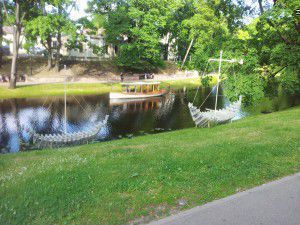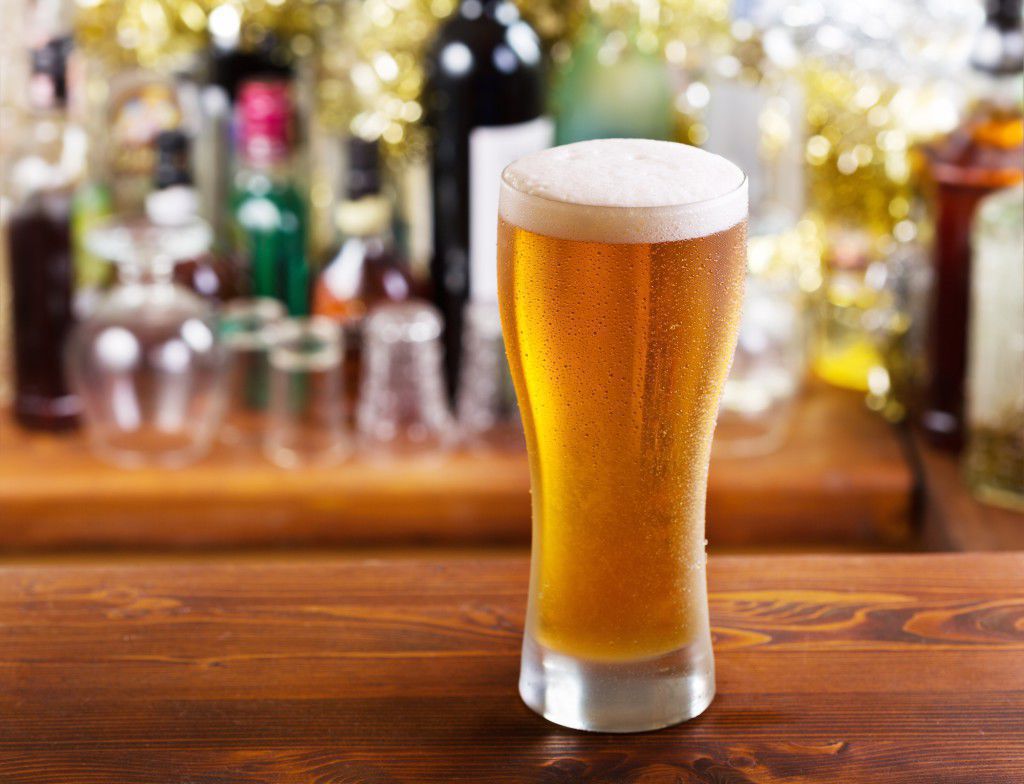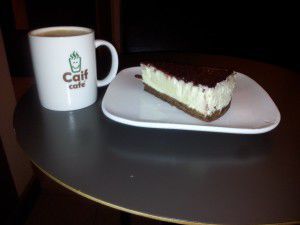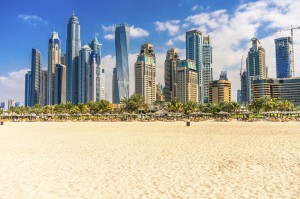The language of beer
‘Two beers, please’ is perhaps one of the most useful phrases you can learn at the start of your language-learning journey (and, incidentally, one of the first items you learn with uTalk Essentials). You’ve made it to the country, you’ve struggled with buses from the airport and fought with taxi drivers over the fare. Now you’ve dumped your luggage and definitely deserve a nice, cool, refreshing beer, so into the pub you go.
There’s just one problem.
If you go into a pub in the UK and ask for a beer, there will be a follow-up question: Is that ale or lager?
The correct answer, by the way, is always ale. Ale, ale, ale, especially if you want to discover a little bit of Northern European culture. We do have lagers here too, of course, but ale is the more traditional drink, available in an enormous range of tastes and colours, served in short, squat pints (or tankards, if you’re lucky), as opposed to the tall spindly glasses that lager generally comes in.
But what is the difference, and why do you need to know about it?
Well, they’re two very different drinks. Very different! Lager is fizzy, cold and has a light flavour, whereas ale is flat and heavy (in fact, in Aberdeenshire, instead of ordering a pint of ale you order a pint of ‘heavy’) and definitely not as cold as lager. Ale drinkers rarely switch to lager and vice versa.
Why choose ale?
The great thing about ale is that there are thousands and thousands of different types, and any good pub will have at least four different ones on tap at any time (if they have fewer than that, just walk out and go somewhere else). You can usually ask to try one before committing to a full pint, as tastes can vary rather wildly in ale, from super-hoppy bitter numbers (again, ‘a pint of bitter’ will get you a pint of ale, if you want to experiment with English colloquialisms), to sweet, chocolatey types and light, refreshing ‘session’ ales. Depending on the region (and Kent, Norfolk and Cornwall are but three UK regions with a strong ale tradition), you might start to spot certain recognisable tendencies, or again you might find a brewery you like and be forever wedded to their creations. For me, anything by Skinners or Sharp’s wins hands-down over anything else on offer.
Still confused? We found this handy infographic by popchartlab that breaks it all down…
Got any thoughts on the different types of beer available in different countries? Do you have a preference for ale or lager? Let us know!
Nat
A trip to Riga
At the risk of sounding like a Eurovision host… greetings from Latvia!
I don’t have the sparkly outfit or the slightly dodgy English accent (although some may disagree with that), nor am I looking for my five minutes of fame. So perhaps less Eurovision host, more lazy wanderer.
 I find myself in the beautiful city of Riga for a few weeks, and after only a few days, I can say it is a good choice with lots to explore.
I find myself in the beautiful city of Riga for a few weeks, and after only a few days, I can say it is a good choice with lots to explore.
Riga has become a ‘must see’ for many a traveller, a mid-point on the popular route between Tallinn and Vilnius.
The time difference is +2 GMT and it’s a little surprising to find the sun rising at 3 in the morning when the evenings draw in much the same time as they do in the UK.
The temperature is actually like the best bits of the UK summer and sometimes hotter, but that can be significantly reduced by the wind.
The currency is the euro, the prices are relatively cheap, the local supermarket is Rimi.
Everything is pretty central and the airport is accessible by little more than half an hour by bus for around 2 euros.
So, that’s the stats and stuff.
So what’s Riga really like?
Well, if you’ve been to Budapest, it’s quite similar. A lot of the cities over this way are like that: where communism still flavours the architecture yet the need for growth and change is evident in the modern buildings that have sprung up amongst them.
The main thing you’ll realise about Riga on arrival is the parks. Everywhere you look there are beautiful parks, with statues, floral sculptures, sailing boats, cafes, and sometimes a ‘summer stage’ where I’m told there are free performances. If you’re a park-bencher – book, beer, cake, coffee – this place is beyond perfect. You could probably do a full tour of all the benches and be here for months!
It’s a ‘shoes off’ culture so be prepared to bare feet the moment you arrive in a hostel or home. Also be prepared for the supermarkets to stop selling alcohol around 7:30. Stock up, early!
The traffic lights can be very quick changing so do not dawdle. You’ll be alerted by a series of beeps. When the beeper beeps, get going!
There is a great central market and if you go inside there are a lot of stalls selling local fare. Prepare to put on weight. It is pastry-central here. I haven’t tried savoury Latvian food yet, but that day will come.
Whilst English is not spoken everywhere, the locals are used to the poorly multi-tongued English speaker, and are patient and on the whole very kind.
It’s too soon to tell but I imagine a week would be an adequate length of time to see everything there is to see of Riga. But, since I’ll be here for a while yet, perhaps I can provide a little more detail on that in the near future.
But until then, and until I sample the local beer… Priekā! (cheers)
Kelly
Way, Haul Away… Sea shanties and language learning
Last weekend, I spent a very merry, slightly tipsy few days at the International Sea Shanty Festival in Falmouth.
International What, now? Allow me to explain.
 Every year, Falmouth town hosts a three-day festival of nautical songs and chants, to which people flock not only from all over Cornwall, but from foreign parts too – Ireland, Brittany, England, even America. Every B&B, campsite and hotel is full to the brim with shantymen (and, increasingly, some shantywomen!), and the streets swarm with be-smocked musicians and the occasional pirate. Nearly every pub (of which Falmouth has a very generous range) becomes a venue for the various shanty bands, who also play on street corners, outside shops and in the public squares.
Every year, Falmouth town hosts a three-day festival of nautical songs and chants, to which people flock not only from all over Cornwall, but from foreign parts too – Ireland, Brittany, England, even America. Every B&B, campsite and hotel is full to the brim with shantymen (and, increasingly, some shantywomen!), and the streets swarm with be-smocked musicians and the occasional pirate. Nearly every pub (of which Falmouth has a very generous range) becomes a venue for the various shanty bands, who also play on street corners, outside shops and in the public squares.
Each hour, a venue’s lineup changes, and you’ll see canvas smocks in Breton red, navy blue and stripes scurrying from one establishment to another as they get ready to set up for their next gig. Every year, I make elaborate plans to switch venue every hour to see all the bands I want to see, but inevitably the beer in one pub ends up being unusually good, and a seat becomes vacant, and 7 hours later you find that somehow you’re still in the same venue and 7 different bands have floated on and off stage before your eyes, whilst old-timers have come and shared your table and had a natter about… well, everything under the sun. Which is all very much in the spirit of the festival.
So what is a shanty?
Most people think the name ‘shanty’ comes from the French ‘chanter’ (to sing). Although there’s some debate about this, what’s definite is that a shanty is a traditional form of song sung by sailors, which aims to reflect the rhythm of the work on deck (hauling halyards, pulling the anchor, setting jibs, winding a capstain). Often, a lead shantyman will give the ‘call’ and then the other crew will give the ‘response’ (short, sharp calls and responses for the jobs requiring bursts of energy; longer, more lyrical ones for the slower jobs). Working shanties often feature the nature of the work itself as the main theme – ‘Haul Away Joe’, ‘Wey, hey, blow the man down!’ – but for those lonely evenings or periods of comparative calm, there are the wistful shanties which recall the shore and all its comforts – ‘Spanish Ladies’, ‘Maggie May’ – and remind the young sailors of their sweethearts left behind (often including a not-so-veiled warning about what said sweethearts are most likely getting up to with other boys whilst their sailors are at sea).
Who sings shanties nowadays?
There are plenty of shanty bands around the country – and the world. This weekend alone, I saw bands from Falmouth, Treverva, Salisbury (not a lot of sea in Salisbury, but there you go), Brittany, Exmouth, Holland, Poland, Yorkshire, and plenty more places. Some are professional groups with regular gigs of their own, whilst others are more casual affairs – people who just love to shant!
What’s all this got to do with language?
I’m glad you asked. The thing is that although shanties get sung in all sorts of languages and dialects, you never, ever feel left out by not understanding the words. Turn up to one of the Breton bands and (unless you speak Breton or Cornish), you probably won’t have a clue what the words mean, but you’ll definitely understand the spirit of it, and before long you’ll find yourself singing along to the chorus, arm in arm with everyone else. In part, this is because shanties are very repetitive by nature, so it’s easy to pick up on lyrics and sing along.
All of which makes me think that singing has got to be a great way to pick up a new language – and any type of song will do! Nursery rhymes, pop songs, national anthems, folk songs, poems, choral music, raps; it all helps, it really does. I still remember all the Zulu words to ‘Siyahamba’, which Safia and I learned over just a few days (video evidence below). And even if you don’t know exactly what all the words mean to begin with, it’s a huge encouragement to be able to fluently reel off a couple of sentences in your new language, all learned through song.
…Way, Haul Away,
We’ll Haul Away, Joe!
Nat
The ups and downs of coming home
When you work abroad as an English as a foreign language teacher, coming home for the occasional visit and obligatory Christmas festivities means there are a number of things to look forward to. Personally custard, gravy and drinkable tap water are pretty high up on my list, but that’s just me. Friends, family, Wetherspoons breakfast… there are all sorts of things that beckon you and make home, home.
But there are also pitfalls, things you forget about and either take for granted or that have become so instilled, you don’t realise you are doing them.
Here’s a few of mine. Play snap?
Roads
No matter how many times I come back, I always get flummoxed by the roads. Left hand lane, right hand lane… I look both ways to prevent becoming a bug stain on a car bonnet every single time. And once I tried to get on the driver’s side of a National Express coach. The driver patted his knee and asked me if I’d like to drive. Possibly not…
Language
Yes, I should know better. But when I want to know the price of something I always find myself speaking in the language of the country from where I have just come – currently ¿Cuánto es? to check a price and perdona when I bump into someone. Which I do. A lot. Clumsy…
Customs
My first cafe visit on arriving back to England involved me trying to kiss a stranger. Not because I’m a floozy, but because I’ve just come from Spain, and the double kiss thing is part of my everyday greeting. Honest.
Manners
Someone sneezes, I say everything apart from bless you as a result of a number of different colds in a number of different cities. Thank you. Pardon. Would you mind…? Sorry. Sorry to inanimate objects like doors and trolleys. All the time. No wonder people outside of the UK have the mistaken impression that we are very, very polite.
 Price checking
Price checking
When you first go abroad you convert everything back into pounds, but when you come back here after an extended stay away, everything is automatically put back into euros (or whatever currency you know). Which makes every shopping trip an accounting adventure.
How much?!
Somewhat in the category of price checking I know, but hear me out. If you’ve gone from having a jarra of beer that is 1,50€ and you’re presented with a pint that is around £3-4, an outraged and indignant yell is likely to escape your lips without even a thought.
Lack of privacy
Families. They mean well. Of course they do. In theory. But it doesn’t matter your age or circumstances, when you return home to the ‘family nest’, you will be bombarded with questions (‘when are you settling down?’), misplaced praise (‘oh, you’re so brave to go off travelling’) or enforced schedules (‘we’ll have breakfast at 7, lunch at 1, and dinner at 7:30. And this is your itinerary for your stay.’) When you’ve been used to your own space and doing as you please when you feel like it, coming home can sometimes be a stifling experience.
Envy
Yes. People who hate their jobs and their lives will envy you. They will covet your lifestyle of devil-may-care and say things like ‘I don’t know how you do it’ whilst plucking one child from their knee while another is attached round their neck, telling you about their plans for decorating the living room and showing off their latest car. We don’t judge you for your lifestyle, settlers (well, we do, just… quietly), so why judge ours? And if you hate your job so much, leave. That’s what we did. Nothing magical.
Catching up on gossip
Even about people you don’t know. Especially about them. See, while we’ve been off living our lives, running between classrooms or students’ apartments, jumping from train to metro to bus and wondering if the GPS on our phones will ever kick in and be helpful, life has continued at home too. And somehow, even though we’ve not been told about events, we are automatically assumed to know about them. I personally blame Facebook for that.
Travel, demystified
For some people, planning a new work route is daunting, whether using a satnav, Google Maps, or an A-Z. And if you have to travel to another city for business, well. Brave new world. But when you travel a lot because of work, train stations, airports and maps no longer phase you, and neither does the prospect of getting lost. Living in another country makes you realise that getting lost is actually no bad thing, merely an unexpected adventure. After all. If Bilbo had taken the ‘correct’ path he was ‘supposed’ to, we’d never have even known of Hobbitty adventures, elven legends and secret kings. Life is in the adventure, is it not?
A moment of doubt
There is sometimes a moment. When you look around at all the people who were once a part of your daily lives, getting on and doing their thing, living a different existence, and you think… why can’t I do that? Why can’t I just stay in one place for an extended period and do the settling thing? And then the moment passes. Because settling isn’t for everyone. Mortgages, the 2.4 kids, and the family saloon in the driveway is really not for everyone. There is nothing wrong with either way of living. And after a week or two, or sometimes a day or two, the call of leaving comes screaming and you start looking longingly at planes overhead or twitching every time you pass a train station. Off you go, traveller. Time to depart again. Home (and gravy) will still be here when you get back.
Has anyone else had similar experiences when coming home from travelling? Or do you have any stories to add? We’d love to hear from you 🙂
Kelly
10 reasons to visit… Dubai
Dubai, in the United Arab Emirates, is known for being a global business hub and home to some of the world’s most incredible buildings. Amy visited the city over the Easter holiday and loved it; here are her top ten reasons to visit…
1. Burj Khalifa
The tallest building in the world – at least for another few months, anyway – is a sight you definitely won’t be able to miss. Designed to look like the Hymenocallis flower, it is beautiful from the outside and surprisingly not out of place or invasive to its surroundings. If you’re able to go up to the viewing platforms, I would recommend going at sunset because the view is spectacular, and to be able to view Dubai from such a height is really special. However, if you aren’t able to go up the Khalifa, you have to go to the fountains at the bottom, where you can see them dancing to different types of music.
2. The Dubai Mall
The Dubai Mall is the world’s largest shopping, leisure and entertainment destination. Anything and everything you can think of is there; it’s where the locals go to shop and even people from Abu Dhabi come at the weekend. They have a waterfall with bronze statues diving from the waterfall – this is where I found it rather peaceful and zoned out of the crowds behind me. It is definitely somewhere to go and have a look around, especially as it is attached to the Khalifa, but be prepared for the crowds.
3. The architecture
Dubai has grown considerably in the last 25 years. You can find pictures of Dubai in 1991, when there were only a handful of tall buildings, compared to now where it has become an architectural paradise. My personal favourite was the Cayan Tower, as it seemed to constantly glisten in the sun from every angle. I have also never seen a twisted building before.
4. Atlantis
This hotel on the man-made island Palm Jumeirah is simply incredible; it’s huge, and there are so many things that you can do. There is the aquarium, water park, swimming with dolphins and now swimming with sea lions. We had a lovely day here; firstly swimming with dolphins, and the look on my little brothers’ and sister’s face when they got to stroke the dolphins was magical. Then we went to the water park where they have awesome rides. It is definitely worth spending a day here.
5. The beaches
The beaches on the Palm felt a little too fake to me. However, the beaches off the Palm were beautiful. The sea was crystal clear, so you could see where you were walking, and rock-free so you didn’t have to worry about stubbing your toe. We got to see the sea when it was perfectly still, which was lovely for swimming in. Then we got to see it when the waves were huge; this was great fun to jump the waves. You felt safe the whole time, as there were lifeguards in kayaks out at sea as well as several on the beach.
6. The weather
We were in Dubai for eight days and the weather was glorious the whole time; if anything it became too hot on one day, when it reached 42°C. There aren’t many places where you can escape to at Easter for a week and be guaranteed good weather the whole time you are there, but Dubai is definitely a safe bet.
7. Sky Dive Dubai
I think it is on quite a lot of people’s bucket list to do a sky dive, and I finally gained the courage to sign up to do one. The experience is one that is tricky to put into words, as you going through several different stages. In the plane there are nerves, but they’re very good at keeping you talking so you don’t notice how high you are. Next, walking up to the door I felt complete terror and it finally sunk in that I was about to jump out of a plane!!! Then just pure adrenaline throughout the free fall; this was definitely my favourite stage. Once the parachute releases, there’s relief at first and then you get to enjoy Dubai from the sky, admiring the view from different angles. Once the landing is over, there is the ‘thank goodness I made it down safely’ feeling, followed by ‘I want to do it all over again’!
8. Hotel Al Qasr
We had a little disaster with our first hotel; however when we moved to our second hotel the Al Qasr, I have never seen anything like it. It’s an oasis in paradise. You have to get boats to different parts of the hotel, which is a great experience and a good way to see different parts of the hotel. There’s even a traditional souk, where you can go and practise your haggling skills.
9. The unexpected
Wherever you go in Dubai you never really know what you are going to get, which makes it all the more exciting. You never know if you are going to find something modern or something more traditional; around each corner lies something different. That is one of the things I love about Dubai, the architecture and landscape varies so dramatically. I can’t wait to go back and explore even more.
10. Desert Adventures
This is a great excursion to do; I admit it’s a little cheesy but it’s great fun, and definitely an experience you won’t forget. You get picked up in a big 4×4 and before long you have left the concrete jungle and are into the desert. You skid down sand dunes and attempt to get back up them; I have full respect for the drivers as I have no idea how we didn’t end up rolling down the dunes. Next you get to watch the sunset over the desert, which is stunning, followed by dinner in the desert at a makeshift fort. You are serenaded by belly dancers and can enjoy a camel ride.
Have you ever been to Dubai? What are you favourites bits about this diverse city?
Amy








